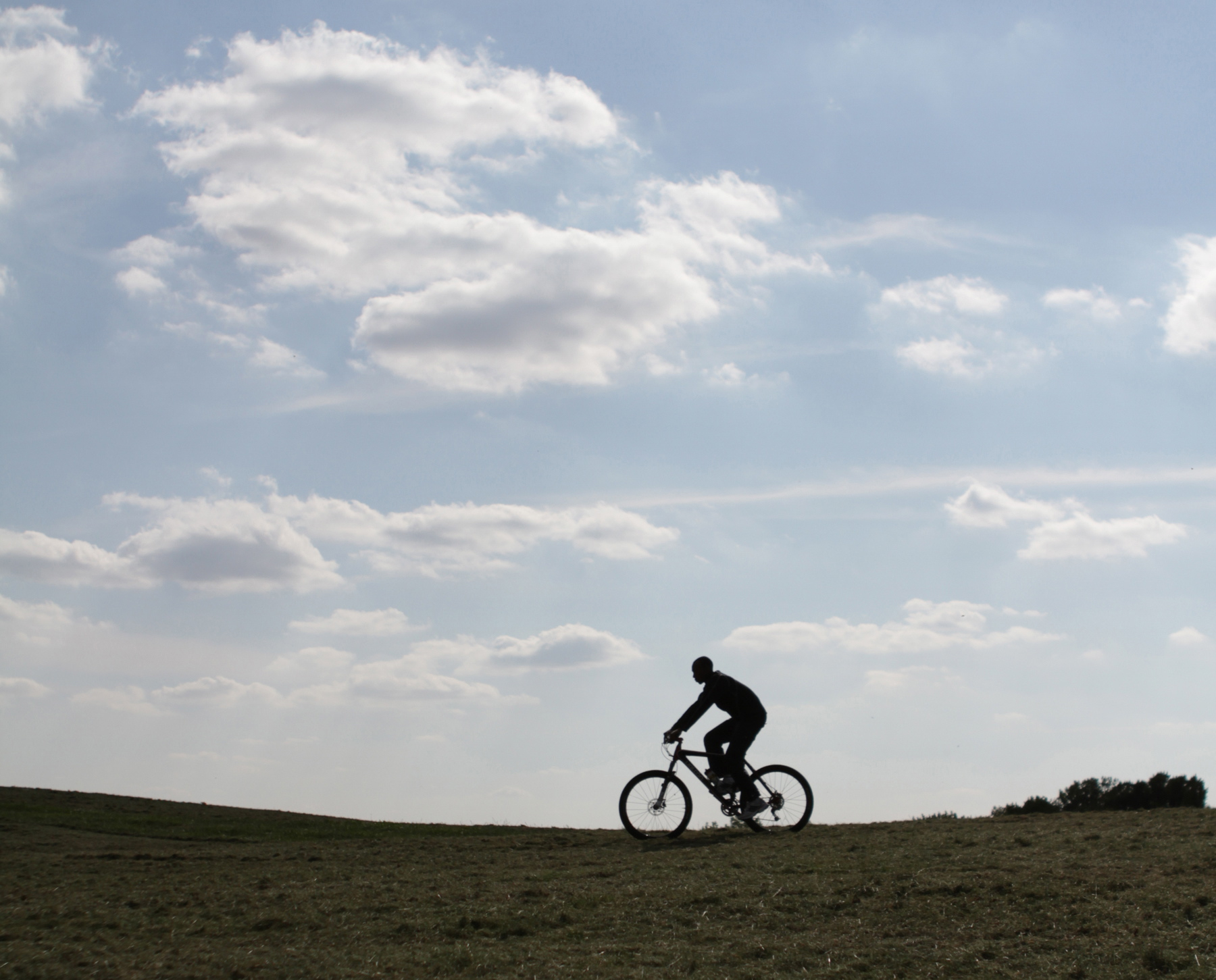Rising From Ashes
Opens Fri., Sept. 13 at Seven Gables. Not rated. 80 minutes.
Now that the disgrace of Lance Armstrong is past and the yellow wristbands have come off, we need a new cycling cause to support, a different team jersey to wear on weekend rides. In place of the old Livestrong colors, let me suggest the handsome blue, green, and yellow of Team Rwanda. (You can buy one at teamrwandacycling.org.) Produced and narrated by Forest Whitaker, this powerful documentary unfolds over six years from the time when mountain-bike industry pioneer Tom Ritchey first visited Rwanda. A dozen years had passed since the Hutus’ 1994 genocide against the minority Tutsi, and the country was still in a fragile rebuilding stage. Bicycles, used mainly for transport, were also being raced; and Ritchey brought along his friend and former pro racer Jock Boyer. An 18-year-old trounced the middle-aged pair—and everyone else—in one such race; from that, the idea of a national team was hatched. His life back home a shambles, Boyer stayed behind to coach the squad.
Rising From Ashes is vague about the team’s financial backing. (Faith groups helped support both the team and the documentary—from which all proceeds are promised to Team Rwanda.) It also interpolates Boyer’s redemption, from an underage sex-offense conviction and jail time, rather more than needed. The bigger story is that of Rwanda’s post-colonial history, and there are searing images from the ’94 slaughter. Then a child, Adrien Niyonshuti lost six of his brothers, he says, and 60 members of his mother’s clan. He’s the teenager who would beat Boyer and Ritchey, and as the team’s most talented member, he becomes the focus of Rising From Ashes
Frankly striving for uplift and inspiration, T.C. Johnstone’s film isn’t always subtle, but what’s subtle about genocide? Niyonshuti and his Tutsi teammates don’t talk much about healing (that peculiar Western notion), and they evidently have to be coaxed into recalling the painful past. (The Hutus on the team aren’t pressed on such matters.) What they do best, of course, is ride, and Rising From Ashes is immersed in the particulars of cycling. The team first trains on old hand-me-down bikes through the gorgeous Rwandan countryside; then Boyer adds stern professionalism, takes them to South Africa and the U.S. to race, raises their horizons, and introduces them to the appreciative media. (The New Yorker’s Philip Gourevitch, who knows a thing or two about Rwanda, has profiled the team.) Financial support and new gear follow, leading Niyonshuti to marvel of a new rig, “The first time I rode a bike when you use the brakes, [and] it stops.”
Johnstone’s doc goes all the way through the London Olympics last summer. I won’t give away the results, but after being misled in so many recent Tours de France, everyone here emerges a winner.
bmiller@seattleweekly.com








